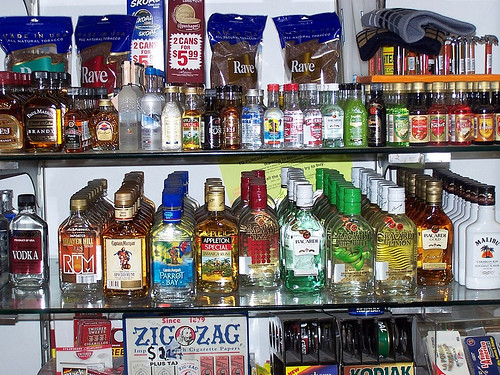Boozing Can Get You Hospitalized But Could Help You Stay Alive Too

While too much alcohol can often land you in the hospital, it can, ironically, help you stay alive there. A new study shows that patients are less likely to die in the hospital if they're intoxicated.
However, before you stop reading and head to happy hour, study author and University of Illinois at Chicago researcher Lee Friedman wants to get one thing straight.
“This study is not encouraging people to drink,” Friedman said in a statement on Monday.
In his work, published online in the journal Alcohol, Friedman examined Illinois hospital data for more than 190,000 traumatic injury patients that were admitted between 1995 and 2009. Of these, 6,733 of the patients died in the hospital. The patients' blood alcohol levels ranged from 0 to .5, a very dangerous threshold close to alcohol poisoning and death.
The data shows that “after an injury, if you are intoxicated there seems to be a pretty substantial protective effect," said Friedman. "The more alcohol you have in your system, the more the protective effect."
This benefit extended across a broad range of traumatic injuries, including fractures, open wounds and internal injuries. The only exception to the rule was burns.
Both a mild buzz and a full-on bender provided protective effects.
"At the higher levels of blood alcohol concentration, there was a reduction of almost 50 percent in hospital mortality rates," Friedman says. "This protective benefit persists even after taking into account injury severity and other factors known to be strongly associated with mortality following an injury."
It's unclear what mechanism allows alcohol to protect injured patients against death. There is some evidence from animal studies that alcohol can guard against brain damage. One experiment with rats, published in the journal Gene this past October, found that rats that were given alcohol before a traumatic brain injury had lower activity levels of an enzyme called caspase-3, which plays a role in the chemical signaling process involved in cell death.
"Our results indicate that moderate alcohol consumption may have protective effects on apoptotic cell death after traumatic brain injury," the authors wrote.
However, other work on alcohol and injury in humans tends to contradict results in animals, thanks to differently designed studies, according to Friedman.
More research is needed to investigate this phenomenon. Doctors should be able to recognize intoxicated injury patients and understand how their blood alcohol levels could affect their courses of treatment.
Then, if scientists are able to deduce just how alcohol confers a protective effect, "we could then treat patients post-injury, either in the field or when they arrive at the hospital, with drugs that mimic alcohol," Friedman said.
SOURCE: Friedman, Lee. "Dose-response relationship between in-hospital mortality and alcohol following acute injury." Alcohol 46: 769-775, December 2012.
© Copyright IBTimes 2024. All rights reserved.











